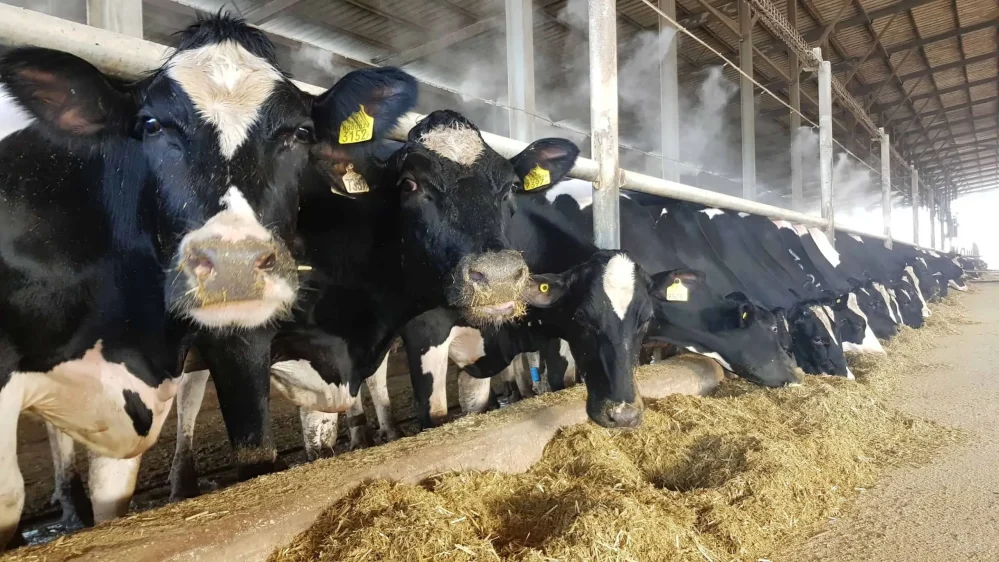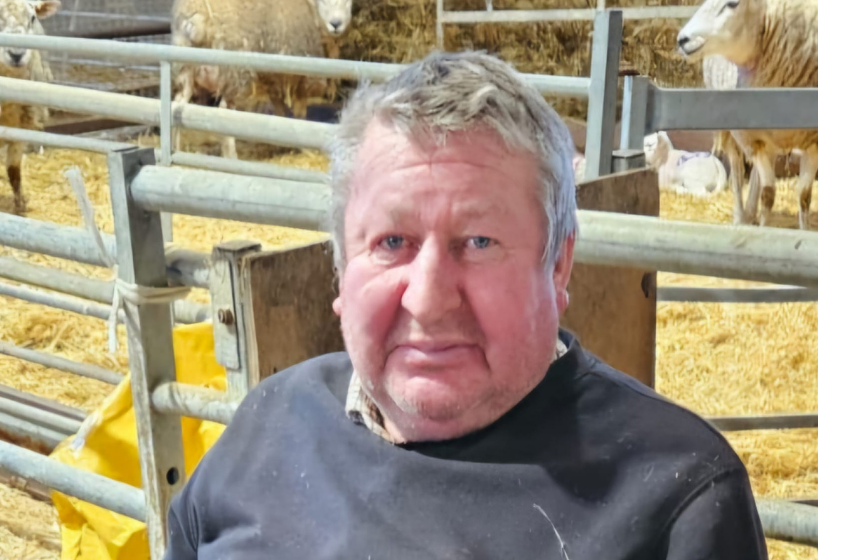Farming
A vision for Welsh upland farming

The NFU Cymru Vision for Welsh Upland Farming report, which was underpinned by a survey of over 750 farmers, was launched at the Vision for Welsh Upland Farming virtual conference on Tuesday, November 24.
The document reveals that 96% of farmers surveyed believed their role as food producers was very important or fairly important, with 95% saying that food production and sales were very important or fairly important to the viability of their business.
The biggest worry for Welsh upland farmers to surface from the research was farm business profitability, with 85% of those questioned stating this was a ‘significant threat’ to the sector. The vast majority of those questioned (92%) said it was vital that future Welsh farming policy included measures that ensured farmers could make a reasonable living.
With the Brexit transition period coming to an end, 84% of farmers surveyed said that future trade deals were a significant threat to upland farming, while 80% stated that future policy was a significant threat.
NFU Cymru said the findings of this research work provide ‘another compelling argument’ as to why future Welsh agricultural policy should include a stability measure to help ensure the safe supply of food and as an economic foundation in rural communities, alongside the other multiple benefits provided by Welsh farming, amid changing trade and climate conditions.
The new NFU Cymru study also shined a light on Welsh upland farmers’ attitudes towards the environment.
The survey data further emphasises farmers’ role as drivers of the rural economy. 30% of farmers surveyed said their business supports or buys from 21 to 50 different businesses, with a further 10% stating that their business trades with or buys from more than 51 other businesses.
The important contribution of Welsh upland farming to rural communities and Welsh culture was also revealed.
Diversification remains an important income stream for many Welsh farms; 43% of farmers responding to the survey stated that they had a non-farming element to their business. The most popular diversification enterprises were renewable energy (43%) and accommodation (42%).
Discussing the importance of NFU Cymru Vision for Welsh Upland Farming project, NFU Cymru LFA Board Chair Kath Whitrow said: “In recent years, despite their extent and significance, we have seen upland farming policy de-emphasised. As our relationship with the EU changes, the economic rationale for upland livestock production is threatened. Global environmental challenges, such as climate change and biodiversity decline, are viewed by some as drivers for land-use change without any consideration of the wider impacts.
“At this pivotal time for Welsh farming as we transition out of the CAP and into a new ‘made in Wales’ agricultural policy, the NFU Cymru LFA Board wants to ensure that the voice of Welsh upland farming is clearly heard in this debate. This is a message that has resonated strongly with Welsh upland farmers and, despite the limitations placed on us as a result of Covid-19, the voice of farmers across Wales has been clearly heard with our survey attracting a fantastic number of responses.”
NFU Cymru President John Davies said: “The Vision for Welsh Upland Farming report launched at today’s conference is one of the most comprehensive pieces of research work undertaken by NFU Cymru. Its findings are of strategic importance not just to the people living and working in the Welsh uplands, but to the whole of Wales.
“This research provides another compelling argument that future Welsh agricultural policy should include a stability measure to support farmers by protecting them against the increased volatility that affects businesses, trade and production. Such backing would ensure our farmers can continue providing safe, affordable food, as well as boosting the economy, enhancing the environment, caring for our cherished landscapes communities and being champions of Welsh language, culture and rural communities.
“I urge our policymakers in Cardiff Bay to carefully consider the report’s key recommendations and work with us to ensure that the people and communities of the Welsh uplands can continue to deliver for the whole of Wales.”
Farming
Farm building scheme near Lawrenny given go-ahead by planners

AN APPLICATION for a storage building at a south Pembrokeshire farm, made by a family member of an officer on Pembrokeshire County Council’s planning service, has been given the go-ahead by the authority’s planning committee.
In an application recommended for approval at the July 23 meeting of the authority’s planning committee, Laura Elliot sought permission for the erection of an agricultural storage building at Tedion Farm, a dairy farm near Lawrenny.
The application had been brought to committee, rather than being delegated to planning officers, due to the family connection.
The farm, near to the Pembrokeshire coast National Park border, comprises 270 milking cows and dairy heifer replacements kept on the farm comprising land over 138 hectares. The farm is mainly down to grass and the cows are paddock grazed in order to utilise grass efficiency.
No objections had been received from local community council Martletwy.
A report for members said: “The application seeks consent for the erection of agricultural storage building. The erection of an agricultural building will be used to store stay, hay and farm machinery.
“The building would be located within the existing farm complex, to the north-east of the site, adjacent to the main farm dwelling. The building will measure 18 metres in length by 13.6 metres in width, with a pitched roof height of 5.71 metres.”
Approval was moved by Cllr Alistair Cameron, seconded by Cllr Brian Hall.
Farming
Fears dairy farm near Kilgetty could increase to 3,000 cattle

PEMBROKESHIRE planners are to visit the site of one of the county’s largest dairy farms after claims were raised a scheme for new calf buildings could lead to animal welfare issues and an increase in the size of the herd to 3,000 cattle.
At the July 23 meeting of the council’s planning committee, an application by Hugh James of Langdon Mill Farms Ltd for a calf building, weaned calf building, and associated yard areas, at Langdon Mill Farm, near Jeffreyston, Kilgetty was recommended for conditional approval.
Local community council Jeffreyston has raised concerns, made by a member of the public, on potential increased noise and odour from the scheme, planners heard.
A supporting statement, through agent Reading Agricultural Consultants, said: “The holding currently has a milking herd of approximately 2,000 cows, which are housed indoors for the majority of the year, with dry cows [cows that are not lactating, prior to calving] and heifers grazed outdoors when weather and soil conditions permit.
“There has been significant investment in buildings and infrastructure at the farm over the last decade in respect of cattle accommodation, slurry storage, milking facilities, Anaerobic Digestion (AD) plant and feed storage. The unit is efficient, achieving yields of more than 10,000 litres/cow/year, with cows being milked three times/day in the 60-point rotary parlour.”
Currently, calves are reared at Langdon Mill Farm for two months before being transported off-site to be reared at a number of third-party farms in the area before being return later; the proposed 61.2m long calf building is required to accommodate young-stock, following separation from the cows, to two-months, with the 164.8m weaned calf building to be used for calves from two months to seven months.
The application says the proposals would “clearly make the enterprise more financially robust by reducing reliance on third party farms”.
However, concerns were raised at the committee meeting by objector Ian Dennis, a former vet of some four decades’ experience, who described Langdon as occupying 3,000 acres of land with 2,000 cattle currently that “are never allowed to graze,” the proposal, he said, would add another 1,000 cattle to the site.
“This is factory farming, an intensive livestock unit, no longer a farm.”
He told planners a “mendacious and incorrect” ammonia emission report submitted by the applicants was “designed to bamboozle,” saying, despite his experience and scientific background, he needed expert support to assess.
He said only average figures were reported, rather than peaks and troughs, adding the “fictitious anaerobic digestion plant” had yet to be built, with planning permission now lapsed.
However, officers told members the applicant’s agent had said works on the digestor had actually started.
On the issue of animal welfare, Mr Dennis said he had “very huge concerns” about the scale of the development, differing from a planning officer report saying the scheme would bring animal welfare benefits.
A suggestion by committee chair Cllr Simon Hancock the application be deferred pending a site visit was unanimously backed by committee members present.
Farming
Family pay tribute to farmer, 65, who died in quadbike accident

A WEST WALES farmer has died after an incident involving a quadbike.
Dyfed-Powys Police have confirmed they attended a report of an incident involving an agricultural quadbike in a field in the Llanilar area of Aberystwyth on July 17.
The force has confirmed that a 65-year-old man died at the scene.
They said that his next of kin have been advised and are being supported by specialist officers. The HM Coroner and Health and Safety Executives have been informed.
His family have paid tribute to him. The family said: “Hugh Tudor was a 65 year old farmer who had farmed at Tynberllan, Llanilar with his wife Ann for over 40 years. He was a devoted father to Sara, Lowri and the late Gwenno.
“Hugh was the son of the late Tom and Sybil Tudor of Glanystwyth and brother to Richard.
“Farming was his life, but he also had a wide range of interests and was actively involved in all aspects of the local community in Llanilar and beyond.
“We would like to thank everybody for their support and kindness during this difficult time.”
-

 Education5 days ago
Education5 days agoMilford Tesco worker achieves Oxford dream and lands top legal job
-

 Crime4 days ago
Crime4 days agoHaverfordwest man admits having nearly 1000 child and animal images
-

 Crime4 days ago
Crime4 days agoYouth set to appear in court over serious sexual offences
-

 Crime4 days ago
Crime4 days agoPolice investigating after man injured during altercation in cemetery
-

 Education4 days ago
Education4 days agoPupils delight in ice cream treat from Pembrokeshire’s number one van
-

 Crime4 days ago
Crime4 days agoTown centre ‘stinking of skunk’ as police strip cannabis farm
-

 Crime3 days ago
Crime3 days agoFag-butt police court summonses spark debate in Pembrokeshire
-

 News6 days ago
News6 days agoProposal to give firefighters a council tax discount to go to Cabinet




























